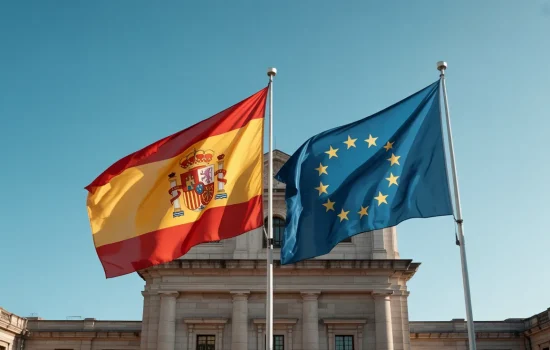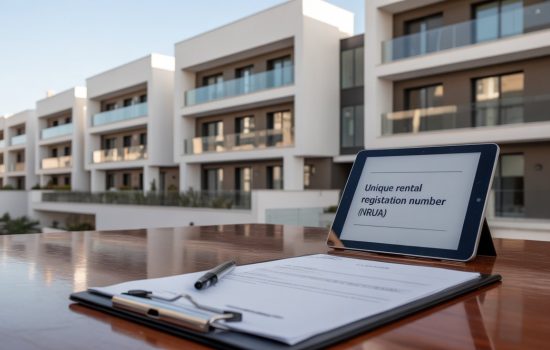
Frequently Asked Questions About Model 210 for Non-Residents in Spain
Model 210 is a mandatory annual declaration for non-residents who own properties in Spain.
Here, we provide some answers to common questions regarding this tax and its submission.
In general, this form is for European non-residents and those from third countries for any income (interests, royalties, etc.).
1. What is Model 210 and its Purpose?
Model 210 is the tax declaration for non-residents in Spain.
This tax applies to individuals not residing in Spain but having property or income in the country, like rentals or property sales.
Even without income, the Spanish Tax Agency makes an imputed income assessment for second properties, also applicable to residents.
2. Do I have to file Model 210 if I own a house in Spain but don’t rent it out?
Yes, even if you don’t rent the property, you must file Model 210.
This is due to a property’s imputed income calculation by the Spanish Tax Agency, assuming the owner gains a fictitious income from the property, even if not rented (applicable to both residents and non-residents, as long as it’s not the primary residence).
3. Who is required to file Model 210?
All non-residents owning properties in Spain, whether rented or not, are obligated to file Model 210.
4. What are the deadlines for filing Model 210?
The deadline for filing Model 210 is until December 31st of the year following the fiscal year it refers to.
For example, if the fiscal year ends on December 31, 2023, you have until December 31, 2024, to file Model 210.
For instance, if you’ve purchased or plan to purchase this year, and the fiscal year concludes on December 31, 2023, you’ll have until December 31, 2024, to file Model 210.
Owners who have had a property in Spain during the 2022 fiscal year should file Model 210 before December 31, 2023, to fulfill their tax obligations.
5. How is non-resident income tax calculated if there’s no rental income?
The tax is calculated based on the taxable base, usually the cadastral value of the property.
6. What is the imputation of imputed property income when not rented?
Imputed property income is a tax calculation assuming the property owner gains a fictitious income from the property, even if it’s not rented. This calculation is based on a percentage of the cadastral value.
7. How is Model 210 filed?
Model 210 is filed online through the Spanish Tax Agency’s website or with the help of an authorised representative.
8. What happens if I file Model 210 after the deadline?
Filing the form late can lead to penalties and fines, depending on the duration of the delay.
9. What’s the difference from the IBI?
Model 210 is paid to the Spanish Tax Office while IBI is paid to the town hall where your property is
10. If I rent the property, do I still have to pay it?
If you rent the property, you must declare the rental income and pay taxes on it. Some rental-related expenses may be deductible depending on the country of residence of the tax payer.
The amount to be paid depends on the taxable base, the applied percentage, and other factors. Professional advice is recommended for an accurate amount.
If you are renting you will find more detailed information on Rental income taxation when a non-resident rents here.
11. Is there any deduction?
If the property is not rented, there are no deductions.
12. The property is under joint ownership, who files the tax?
Both spouses can be responsible for the declaration if they are owners, depending on the marital situation and pre-established agreements. Each tax payer must file a Model 210 for their own share of ownership.
13. Example of tax calculation a non-resident MARRIED couple annually in Spain if not renting:
A married couple residing in a European country acquires a property with an acquisition value of €1,000,000 and a total cadastral value of €60,000.
STATE TAXES
NON-RESIDENT TAX
Non-resident tax calculation: 60,000€ x 2% x 19% = €228 annual NRT
€60,000: cadastral value
2%: tax rate, varies depending on the municipality from 1.10% to 2%
19%: taxation at 19% on net income for Europeans and 24% on gross income for third-country foreigners.
ASSET TAX
Each individual has a value of €500,000. As they are exempt from the asset tax up to €700,000, they don’t have to pay the asset tax.
Asset tax calculation: €0 Each individual has a value of €500,000.
If purchased by a single person, they would have to pay asset tax as €1,000,000 – €700,000 = €300,000 would be taxable, in this example at 0.25%, and they’d pay €750 in asset tax.
LOCAL TAXES
Each municipality may have different regulations and tax rates, so staying informed about local taxes is important to meet fiscal obligations.
IBI – Property Tax, a direct tax collected by town councils.
Waste Collection Fee – Covering waste collection and management.
For more information about post-purchase costs Spanish Property click here.
14. “I know many people who’ve never paid it, do I really have to pay?”
According to Spanish law, non-resident property owners are required to file Model 210 and pay the corresponding taxes, either through the non-resident tax or by imputed property income, depending on whether they rent their property in Spain or not.
Even if some owners haven’t complied with this obligation in the past, failure to meet tax obligations can lead to penalties and fines, as tax authorities can impose penalties for non-filing or late filing of taxes.
In Spain, the Tax Agency has a legal period of 4 years to conduct ordinary tax inspections and claim unpaid taxes from previous years. This 4-year period starts from the end of the voluntary tax filing period.
As Benjamin Franklin said, ‘In this world, nothing is certain except death and taxes.’
15. “Can we deduct what we pay for the property in Spain in our tax return in our country of residence?”
Taxes paid on the same property, being taxed in both Spain and the country of residence, may be deductible in the annual tax return filed in the taxpayer’s country of residence if there exists a double taxation treaty to prevent it between that country and Spain. Please check with your local tax office or tax advisor in your place of residence.
For customised assistance and expert guidance, get in touch with our dedicated department for non-resident foreigners, both European and non-European. With over 20 years of experience, we offer the support and advice necessary to navigate the intricate tax landscape for non-resident property owners in Spain and Model 210
We want to help you navigate all the legal complexities that comes to applying for the Nomad Visa in Spain, but this article is legal information and should not be seen as legal advice.
Foto Generado con IA ∙ 6 de noviembre de 2023, 6:01 p. m.
- View more post about: Non-Resident Tax Return, Rental Income Declaration





